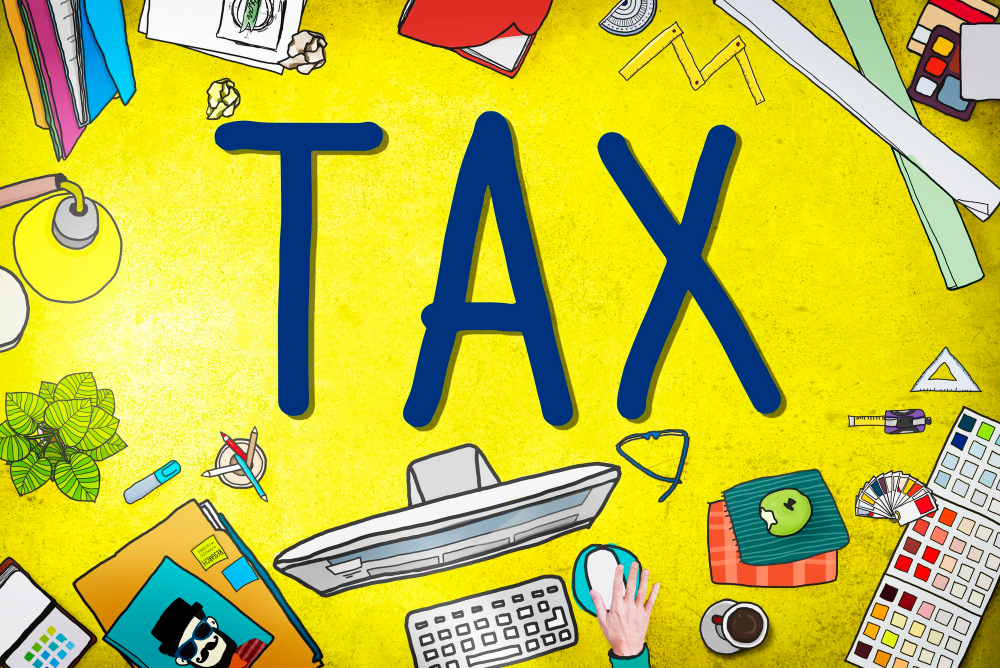Welcome, dear reader, to the thrilling world of double taxation. Yes, you read that right. Thrilling! Who knew that the seemingly mundane world of business tax services could be such a rollercoaster ride of excitement? Buckle up, because you’re in for a wild ride.
Double taxation, despite sounding like a horror movie for accountants, is actually a key concept in the field of business tax services. It refers to the delightful situation where the same income is taxed twice. Sounds fun, right? Well, hold onto your calculators, because we’re about to dive deep into this fascinating topic.
The Concept of Double Taxation
Double taxation is like a bad sequel to a movie you didn’t like in the first place. It’s the taxation equivalent of being forced to watch ‘The Emoji Movie 2: The Return of the Meh Emoji’. It’s when the same income gets taxed twice, once at the corporate level and again at the individual level. It’s like a tax sandwich, and you’re the filling.
But why, you might ask, would anyone design a system where the same income gets taxed twice? Excellent question, dear reader. The answer is as complex and multifaceted as the plot of ‘Inception’, but don’t worry, we’re going to break it down for you.
Corporate Taxation: The First Layer of the Sandwich
The first layer of our tax sandwich is corporate taxation. This is when a corporation, like Big Business Co., makes a profit and the government says, ‘Hey, we want a piece of that action.’ The corporation then pays tax on its profits. This is the first instance of taxation.
But wait, there’s more! After the corporation has paid its taxes, it might decide to distribute some of its remaining profits to its shareholders in the form of dividends. And this is where the plot thickens.
Individual Taxation: The Second Layer of the Sandwich
When a shareholder receives dividends from a corporation, they’re not just getting a nice little bonus. Oh no, they’re also getting a tax liability. That’s right, the government wants a piece of this action too. So, the shareholder pays tax on the dividends they receive. This is the second instance of taxation on the same income.
And that, dear reader, is double taxation. It’s like a tax version of ‘Groundhog Day’, but without the charming presence of Bill Murray to make it all bearable.
Double Taxation Agreements
Now, you might be thinking, ‘This double taxation thing sounds like a real bummer. Isn’t there anything we can do about it?’ Well, you’re in luck! Many countries have double taxation agreements (DTAs) in place to prevent this kind of fiscal fiasco.
DTAs are like the superhero of the tax world, swooping in to save the day when double taxation rears its ugly head. They’re agreements between two countries that determine which country has the right to tax certain types of income. It’s like a tax version of ‘The Avengers’, but with less spandex and more spreadsheets.
How Double Taxation Agreements Work
DTAs work by allocating taxing rights between two countries. For example, if a company in Country A has a subsidiary in Country B, the DTA between those two countries will determine which country gets to tax the profits of the subsidiary.
DTAs also often include provisions to prevent tax evasion and tax avoidance. So, they’re not just about preventing double taxation, they’re also about ensuring that everyone pays their fair share. It’s like a tax version of ‘Robin Hood’, but with less archery and more arithmetic.
Methods to Avoid Double Taxation
But what if you’re a business owner or shareholder and you’re thinking, ‘I’d really rather not pay tax twice on the same income, thank you very much.’ Well, don’t worry, there are methods to avoid double taxation.
These methods are like the escape routes in a tax maze. They’re the secret passages and hidden doors that can help you avoid the double taxation monster. But remember, these are legal methods. We’re not advocating for tax evasion here. That’s a whole different horror movie.
Use of Holding Companies
One method to avoid double taxation is the use of holding companies. A holding company is a company that owns other companies. It’s like the puppet master of the corporate world, pulling the strings of its subsidiaries.
By structuring your business with a holding company, you can potentially avoid double taxation. The holding company can receive dividends from its subsidiaries without paying tax on them, and then distribute those dividends to its shareholders. It’s like a tax version of ‘The Matrix’, but with less kung fu and more cash flow.
Capital Gains vs Dividends
Another method to avoid double taxation is to focus on capital gains rather than dividends. Capital gains are the profits you make when you sell an asset for more than you bought it for. It’s like the tax version of ‘The Price is Right’, but with less shouting and more selling.
Capital gains are usually taxed at a lower rate than dividends, so by focusing on capital gains, you can potentially reduce your tax liability. It’s a bit like choosing to watch ‘The Shawshank Redemption’ instead of ‘The Emoji Movie 2: The Return of the Meh Emoji’. You’re still watching a movie, but you’re having a much better time.
Conclusion
And there you have it, dear reader. A whirlwind tour of the thrilling world of double taxation. We’ve laughed, we’ve cried, we’ve made far too many movie references. But most importantly, we’ve learned about a key concept in business tax services.

So, the next time someone mentions double taxation, you can confidently say, ‘Ah yes, the tax sandwich. I know all about that.’ And they’ll look at you with awe and admiration, and you’ll know that you’ve truly mastered the thrilling world of business tax services.


